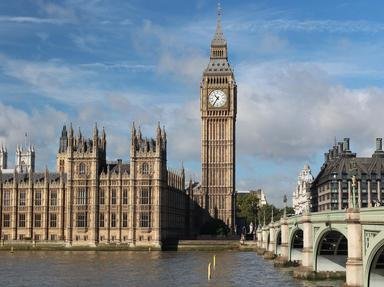Quiz Answer Key and Fun Facts
1. Generally recognised as the first British Prime Minister, he had to deal with the aftermath of the South Sea Bubble crisis and instigated the War of Jenkins' Ear in 1739.
2. This man (who never sat in the House of Lords) had to deal with both the Jacobite rising led by Bonnie Prince Charlie in 1745 and the adoption of the Gregorian calendar that resulted in the 'loss' of 11 days of his term in office.
3. The first Prime Minister to have never sat in the House of Commons oversaw the majority of the Seven Years' War, including the 'Annus Mirabilis' of 1759.
4. This man managed to infuriate the American colonies by passing both the Currency Act of 1764 and the infamous Stamp Act of 1765.
5. This peer's first stint as Prime Minister lasted less than a year but included the signing of the Treaty of Paris to end the American Revolutionary War in 1783.
6. Head of the government known as the 'Ministry of All the Talents' and son of a former Prime Minister; oversaw the act responsible for abolishing the slave trade in the British Empire.
7. While he wasn't busy drinking tea flavoured with bergamot, this man's four year term in office included the passing of the Great Reform Act of 1832.
8. After dealing with Parliament being burnt to the ground in 1834, this Prime Minister had an Australian city named after him. His resignation caused the 'Bedchamber Crisis'.
9. The grandfather of a famous philosopher - this man's first ministry, from 1846 to 1852, was blighted by the Irish Potato Famine.
10. The last 'Whig' government was led by this man who focused on foreign policy; he oversaw the ending of the Crimean War in 1856 and led Britain into the Second Opium War with China.
Source: Author
Fifiona81
This quiz was reviewed by FunTrivia editor
stedman before going online.
Any errors found in FunTrivia content are routinely corrected through our feedback system.


